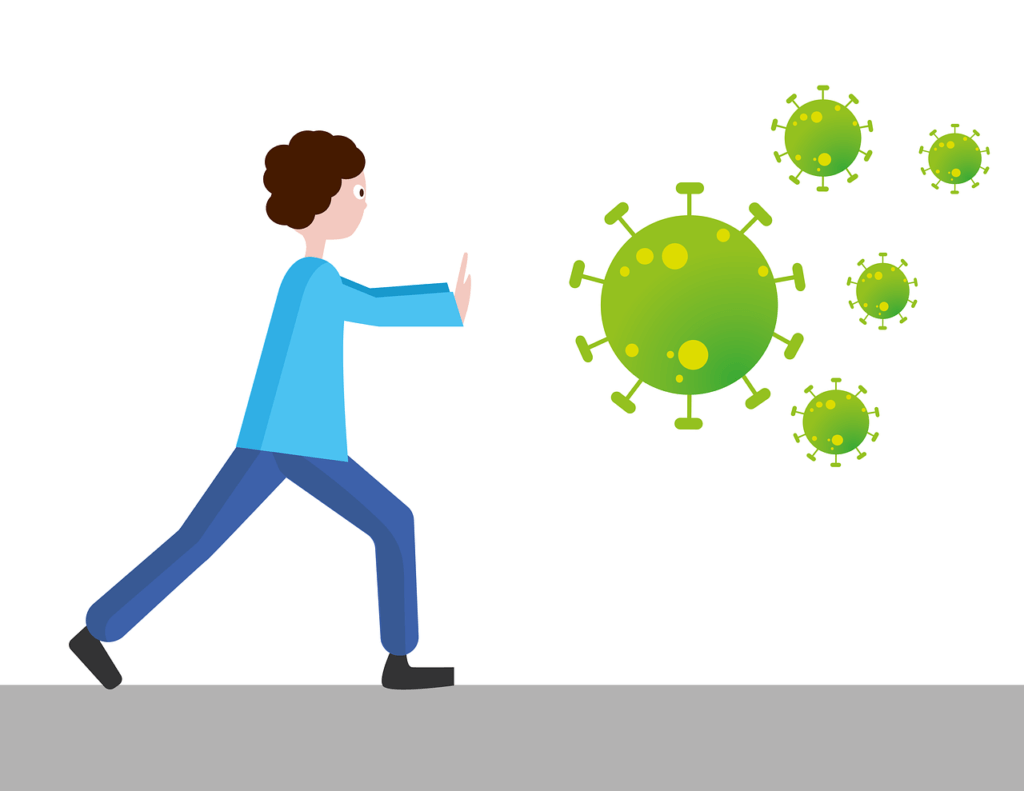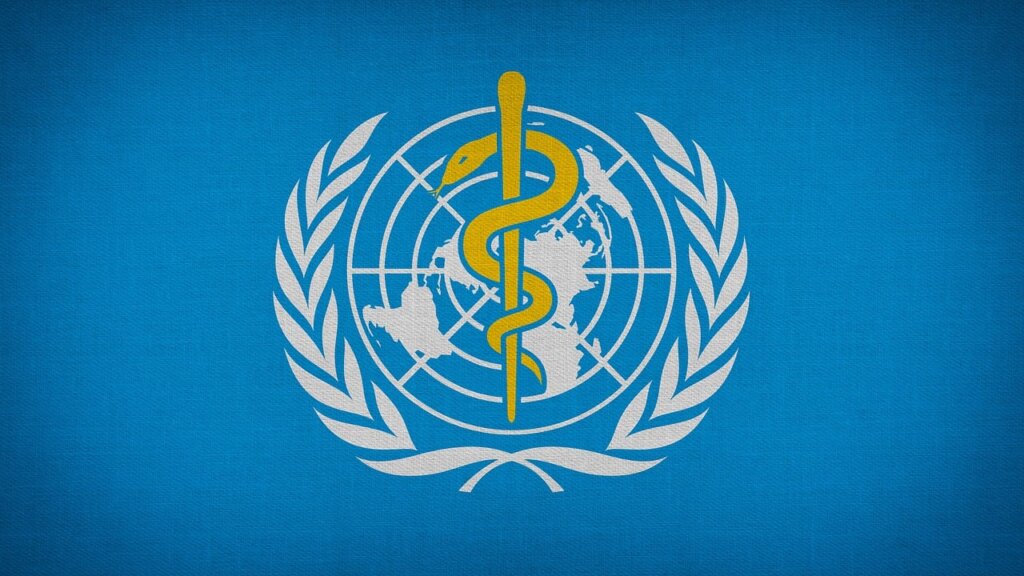30 Nov, 2024 | abdulaleem30121976 | No Comments
What is Hypertension: The Silent Threat to Your Health

Hypertension, often dubbed “the silent killer,” affects millions of people across the globe, often without them even realizing it. This condition, characterized by consistently high blood pressure, puts undue stress on your heart and arteries, increasing your risk for serious health issues like heart disease, stroke, and kidney problems. Understanding hypertension, its causes, symptoms, and most importantly, preventive measures, can empower you to take control of your health.

What is Hypertension?
Hypertension, defined as having a blood pressure reading of 130/80 mmHg or higher, occurs when the force of your blood against the walls of your arteries is consistently too high. Blood pressure readings consist of two numbers:
- Systolic Pressure: The first, higher number, measures the pressure in your arteries when your heart beats.
- Diastolic Pressure: The second, lower number, measures the pressure in your arteries when your heart rests between beats.
Causes of Hypertension
Hypertension can develop due to a variety of factors, including:
- Genetics: A family history of high blood pressure can increase your risk.
- Age: The risk of hypertension increases as you age.
- Obesity: Being overweight puts extra strain on your heart and blood vessels.
- Sedentary Lifestyle: Lack of physical activity contributes to weight gain and increases the risk of hypertension.
- Poor Diet: High salt intake, excessive alcohol consumption, and a diet low in fruits and vegetables can elevate blood pressure.
- Stress: Chronic stress may contribute to temporary spikes in blood pressure.

Symptoms of Hypertension
Hypertension is often asymptomatic, which is why it is commonly referred to as a silent killer. However, in some cases, people may experience symptoms such as:
- Headaches
- Dizziness
- Shortness of breath
- Nosebleeds
- Flushing
Unfortunately, many of these symptoms can go unnoticed until significant damage has occurred, so regular monitoring is crucial.

The Importance of Prevention
Preventing hypertension is crucial for maintaining overall health and reducing the risk of severe complications. Here are effective preventive measures to consider:
1. Maintain a Healthy Weight
- Why: Excess weight increases your risk of hypertension.
- How: Aim for a balanced diet and regular exercise. Even a modest weight loss can significantly lower blood pressure.
2. Adopt a Heart-Healthy Diet
- Why: Foods high in sodium can raise blood pressure.
- How: Follow the DASH (Dietary Approaches to Stop Hypertension) diet, focusing on fruits, vegetables, whole grains, and low-fat dairy, while reducing salt intake.
3. Exercise Regularly
- Why: Regular physical activity strengthens the heart and helps maintain a healthy weight.
- How: Aim for at least 150 minutes of moderate aerobic activity or 75 minutes of vigorous activity each week.

4. Limit Alcohol Intake
- Why: Excessive drinking can raise blood pressure.
- How: Stick to moderate alcohol consumption, limiting it to one drink per day for women and two for men.
5. Manage Stress
- Why: Chronic stress can contribute to high blood pressure.
- How: Incorporate stress-reducing techniques such as meditation, yoga, or deep breathing exercises into your daily routine.
6. Quit Smoking
- Why: Tobacco use raises blood pressure and damages blood vessels.
- How: Seek support programs or resources to quit smoking and minimize exposure to secondhand smoke.
7. Monitor Your Blood Pressure Regularly
- Why: Regular checks help you stay informed about your health.
- How: Use a home blood pressure monitor or visit your healthcare provider for regular check-ups.

Conclusion
Hypertension may often go unnoticed, but the implications for your health can be profound. By understanding the risk factors, symptoms, and effective preventive measures, you can take proactive steps to protect your cardiovascular health. Remember, making small, sustained changes in your lifestyle can lead to significant improvements in managing and preventing hypertension.
If you’re concerned about your blood pressure or have a family history of hypertension, consult your healthcare provider for personalized advice and management. Taking control of your health today can pave the way for a healthier tomorrow!
11 Nov, 2024 | abdulaleem30121976 | No Comments
“Blood Pressure: Causes, Effects, tips for a healthier Life”
A Comprehensive Overview
Blood pressure is a critical physiological parameter that reflects the force exerted by circulating blood against the walls of blood vessels. It is a crucial indicator of cardiovascular health and is measured in millimeters of mercury (mmHg). Blood pressure readings are expressed using two numbers: systolic pressure, which is the pressure during heartbeats, and diastolic pressure, which is the pressure between heartbeats.

Importance of Blood Pressure Monitoring
Monitoring blood pressure is essential for the early detection and management of hypertension—an affliction characterized by persistently elevated blood pressure levels. Hypertension is often referred to as a “silent killer” due to its asymptomatic nature, which can lead to severe complications such as heart disease, stroke, and kidney failure (Kearney et al., 2005).
Blood Pressure Categories
The American Heart Association categorizes blood pressure as follows:
- Normal: Systolic < 120 mmHg and Diastolic < 80 mmHg
- Elevated: Systolic 120-129 mmHg and Diastolic < 80 mmHg
- Hypertension Stage 1: Systolic 130-139 mmHg or Diastolic 80-89 mmHg
- Hypertension Stage 2: Systolic ≥ 140 mmHg or Diastolic ≥ 90 mmHg
- Hypertensive Crisis: Systolic > 180 mmHg and/or Diastolic > 120 mmHg
Understanding these categories is vital for individuals and healthcare providers to implement appropriate interventions (American College of Cardiology, 2017).

Factors Influencing Blood Pressure
Several factors influence blood pressure, including age, genetics, diet, physical activity, and stress levels. A diet high in sodium and low in potassium may exacerbate hypertension, while regular physical activity can contribute to lower blood pressure levels (Whelton et al., 2018).
Managing Blood Pressure
Effective management of blood pressure involves lifestyle modifications such as adopting a balanced diet, engaging in regular physical exercise, maintaining a healthy weight, limiting alcohol consumption, and avoiding tobacco products. In some cases, pharmacological interventions may be necessary under the guidance of a healthcare professional.
Conclusion
In conclusion, It can be easily understand that blood pressure is inter related to heart issues, Regular monitoring of the implications of various blood pressure levels are crucial in preventing potential health complications associated with hypertension. Through lifestyle changes and medical interventions, individuals can effectively manage their blood pressure and promote overall well-being.

References
- Kearney, P. M., Whelton, M., Reynolds, K., Muntner, P., Whelton, P. K., & He, J. (2005) Analysis of worldwide data. The Lancet, 365(9455), 217-223.
- American College of Cardiology. (2017). ACC/AHA Hypertension Guidelines. Retrieved from https://www.acc.org etc.
9 Mar, 2025 | abdulaleem30121976 | No Comments
Climate change and health:
Introduction:
The relationship between the climate/environment and health is intricate and influences the well-being of populations worldwide. Understanding how environmental factors affect health is crucial, especially in our rapidly changing world. This article explores key environmental elements impacting health, the consequences of neglecting this relationship, and actionable steps to improve health outcomes through better environmental stewardship.

Introduction
As urbanization and industrialization continue to rise, the interplay between the environment and health has garnered increasing attention from researchers, policymakers, and communities. The World Health Organization (WHO) estimates that up to 13 million deaths each year are attributable to avoidable environmental factors, highlighting the critical need for a cohesive understanding of this relationship (WHO, 2021).
Key Environmental Factors Affecting Health
Air Quality
Air pollution is one of the most significant environmental health issues globally. Poor air quality is linked to respiratory diseases, cardiovascular problems, and premature death. According to the Global Burden of Disease Study, ambient air pollution contributed to approximately 4.2 million deaths worldwide in 2019 (GBD, 2019). Common sources of air pollution include emissions from vehicles, industrial activities, and household combustion of fuels.

Water Quality
Access to clean water is essential for health. Contaminated water sources can lead to a variety of illnesses, including cholera, dysentery, and other gastrointestinal infections. The WHO reports that about 2 billion people globally do not have access to safe drinking water, significantly impacting public health (WHO, 2020). Contaminants such as heavy metals, pesticides, and pathogens pose severe risks, necessitating adequate infrastructure and sanitation services.
Climate Change
Climate change is perhaps the most pressing environmental issue of our time, influencing health outcomes directly and indirectly. Rising temperatures, extreme weather events, and altered ecosystems contribute to heat-related illnesses, mental health disorders, and vector-borne diseases such as malaria and Zika virus. A study published in The Lancet revealed that climate change could lead to an additional 250,000 deaths annually from malnutrition, malaria, diarrhea, and heat stress between 2030 and 2050 (Paterson et al., 2021).

Chemical Exposure
The production and use of chemicals in agriculture, industry, and consumer products can negatively affect human health. Pesticides, heavy metals, and industrial chemicals can lead to acute poisoning, long-term health issues, and ecosystem damage. Research indicates that exposure to these chemicals is linked to neurological disorders, reproductive issues, and endocrine disruptions (González et al., 2021).
The Consequences of Environmental Neglect
Failure to address environmental health risks can exacerbate existing health disparities, particularly in vulnerable populations. Low-income communities and marginalized groups often reside in areas with higher exposure to environmental hazards, leading to a greater burden of disease. Environmental injustice is a pressing issue, where the most vulnerable populations face the harshest health impacts due to factors beyond their control.
Additionally, neglecting environmental health can lead to increased healthcare costs. The economic burden of diseases linked to environmental factors can strain public health systems and divert resources from other essential health services.
Strategies for Improvement
Advocacy and Policy Change
Implementing policies that promote environmental health is paramount. Governments should enforce regulations on air and water quality, reduce greenhouse gas emissions, and restrict harmful chemicals. Advocacy for clean energy solutions and sustainable urban planning can also significantly improve public health outcomes.
Community Engagement and Education
Raising awareness about environmental health issues within communities empowers individuals to take action. Educational programs that inform the public about the impacts of pollution, climate change, and chemical exposure can foster community-driven initiatives aimed at reducing these risks.

Sustainable Practices
Promoting sustainable practices is essential for mitigating environmental health risks. Encouraging local food production, reducing plastic use, and advocating for renewable energy sources can enhance community health and well-being. Green spaces and urban gardening also contribute to improved mental health outcomes by providing residents with access to nature and opportunities for physical activity.
Research and Innovation
Investing in research that explores the links between environmental factors and health can catalyze innovative solutions. Technological advancements, such as air quality monitoring systems and sustainable agricultural practices, can provide valuable data and tools to address these challenges effectively.
The Role of Health Professionals
Healthcare providers play a crucial role in advocating for environmental health. By integrating the principles of environmental health into clinical practice, professionals can identify and address environmental risk factors in their patients. Educating patients about the importance of a clean environment can lead to healthier behaviors and community involvement.

Conclusion
The connection between the environment and health is undeniable. Addressing environmental health issues requires a concerted effort from individuals, communities, healthcare providers, and policymakers. By prioritizing environmental stewardship, we can create a healthier, more sustainable future for all. The journey towards improving public health through better environmental practices is ongoing, but with collective action, substantial progress can be made.
References
- World Health Organization. (2021). Health and the Environment: A Global Perspective. Retrieved from WHO
- Global Burden of Disease Study. (2019). Air Pollution and Health: A Global Perspective. Retrieved from GBD
- World Health Organization. (2020). Drinking-water. Retrieved from WHO
- Paterson, D. L., et al. (2021). Impact of Climate Change on Human Health. The Lancet, 398(10315), 123–134.
- González, C., et al. (2021). Toxicology of Pesticides and Human Health: The Emerging Evidence. Environmental Health Perspectives, 129(7), 077007.
Through understanding and action, we can foster a healthier world where both people and the planet thrive.
22 Dec, 2024 | abdulaleem30121976 | No Comments
COVID-19 Combination Vaccine: Revolutionary Approach
Fast Track Designation for Sanofi’s Influenza and COVID-19 Combination Vaccine:
In an era where public health is paramount, the U.S. Food and Drug Administration (FDA) has taken a significant step forward by granting Fast Track designation to Sanofi’s groundbreaking influenza and COVID-19 combination vaccine. This innovative vaccine targets individuals aged 50 years and older, a group that has been disproportionately affected by both viruses. The goal is clear: minimize hospitalization rates and reduce mortality among older adults during flu seasons and ongoing pandemics.

The Need for a Combination Vaccine
The Impact of Influenza and COVID-19 on Older Adults
Individuals aged 50 years and above are at heightened risk for severe complications from both influenza and COVID-19. According to the Centers for Disease Control and Prevention (CDC), this age group accounts for approximately 85% of flu-related deaths each year. Likewise, data from various studies indicate that older adults represent a significant percentage of hospitalizations due to severe cases of COVID-19.
Benefits of Combining Vaccines
The development of a combination vaccine offers several advantages:
- Enhanced Immunity:
- By targeting both pathogens simultaneously, the combination vaccine may elicit stronger immune responses.
- Convenience: Patients can receive protection against two dangerous viruses in one visit, reducing healthcare visits. 3.Reduced Healthcare Costs: Fewer visits and interventions can lead to decreased healthcare expenditures for patients and healthcare systems.
The Fast Track Designation Explained
What is Fast Track Designation?
This status allows for more frequent communication with the FDA, helping developers address issues as they arise throughout the development process. For Sanofi, this means quicker access to critical resources aimed at bringing their combination vaccine to market.

Importance of Fast Tracking in Pandemic Response
The urgency surrounding COVID-19 has underlined the necessity for rapid vaccine deployment. By granting this designation, the FDA acknowledges both the potential public health benefits of Sanofi’s combination vaccine and its commitment to protecting vulnerable populations, specifically those aged 50 years and older.
How Sanofi’s Combination Vaccine Works
Mechanism of Action
Sanofi’s innovative formulation combines antigens from both influenza virus strains and SARS-CoV-2 (the virus responsible for COVID-19). By introducing these antigens into a patient’s immune system, it trains their body to recognize and combat these viruses more effectively.
Clinical Trials & Efficacy
Sanofi’s clinical trials will evaluate not only safety but also how well older adults generate an immune response against both viruses. Preliminary studies suggest that combined vaccines can produce robust immunity compared to separate vaccinations, potentially leading to lower rates of hospitalization and mortality during flu seasons exacerbated by COVID-19 outbreaks.
Addressing Concerns About Vaccine Hesitancy
Building Public Trust
In order for vaccination programs targeting older adults to be successful, addressing concerns about vaccine safety is critical. Comprehensive education campaigns highlighting:
- Safety Profiles: Presentation of data demonstrating efficacy in older populations.
- Success Stories: Sharing testimonials from individuals who have participated in trials or received vaccines.
- Healthcare Provider Endorsements: Engaging trusted figures within communities can help mitigate hesitancy around new vaccines.
Conclusion: A New Frontier in Public Health
The FDA’s Fast Track designation for Sanofi’s influenza and COVID-19 combination vaccine represents a pivotal moment in public health efforts targeting individuals aged 50 years and above. With its potential not only to minimize hospitalizations but also reduce death rates associated with these diseases, this innovation could fundamentally change how we approach vaccinations moving forward.

References
- Centers for Disease Control and Prevention (CDC). “Flu Vaccination Coverage.” Retrieved from CDC Website.
- U.S Food & Drug Administration (FDA). “Fast Track Designation.” Retrieved from FDA Website.
- World Health Organization (WHO). “Ageing.” Retrieved from WHO Website.
By focusing on groundbreaking developments like this combination vaccine while actively addressing concerns related to vaccination uptake among older adults, we pave a clearer path toward minimizing hospitalization rates and saving lives over time— particularly within at-risk populations such as those aged 50 years or above.
More on smart way
17 Dec, 2024 | abdulaleem30121976 | No Comments
“Significant Development For The Treatment Of Alzheimer’s Disease”

Introduction
In a significant development for the treatment of Alzheimer’s disease, Cantex Pharmaceuticals has anounced that its investigational drug, Azeliragon, has been granted Orphan Drug Designation by the U.S. Food and Drug Administration (FDA). This designation is a crucial step in accelerating the development of treatments for rare diseases and conditions affecting smaller patient populations.

What is Orphan Drug Designation?
Orphan Drug Designation is a special status granted by the FDA to encourage the development of drugs intended to treat rare diseases or conditions that affect fewer than 200,000 patients in the United States. The designation offers several benefits to pharmaceutical companies, including tax incentives, grant funding for clinical trials, and seven years of market exclusivity upon approval.
Why Azeliragon?
Cantex’s Azeliragon targets specific pathways involved in Alzheimer’s disease progression. This innovative approach aims to address unmet medical needs by potentially slowing down cognitive decline and improving quality of life for patients suffering from this debilitating condition.

Key Features of Azeliragon
- Mechanism of Action: Azeliragon works as an antagonist at the receptor for advanced glycation end-products (RAGE), which plays a crucial role in neuroinflammation associated with Alzheimer’s.
- Clinical Trials: Preliminary results from clinical trials have shown promise regarding safety and efficacy,
- suggesting that this treatment could slow cognitive decline among Alzheimer’s patients significantly.
- Target Population: With Alzheimer’s affecting millions worldwide but particularly impacting older adults—especially those aged 65 and above—Azeliragon addresses an urgent need within this demographic.
Impact on Alzheimer’s Treatment Landscape
The granting of Orphan Drug Designation not only validates Cantex’s research efforts but also strengthens its position within the competitive landscape of Alzheimer’s treatments. Given that current options are limited primarily to symptomatic relief, Azeliragon’s potential to modify disease progression could represent a paradigm shift in how Alzheimer’s is treated.

The Importance of Innovative Treatments
Innovative therapies like Azeliragon are crucial, especially as the population ages and the incidence of Alzheimer’s continues to rise. According to the Alzheimer’s Association, an estimated 6 million Americans aged 65 and older are living with Alzheimer’s disease. This number can increase by 1.5 million patients, in the next 2 to 3 decades. The importance of possible treatment with efficacy is more pursuing in the future.
Regulatory Support and Future Developments
The FDA’s Orphan Drug Designation for Azeliragon not only provides vital support but also signals confidence in Cantex’s approach. Moving forward, Cantex plans to expedite clinical trials with hopes of bringing Azeliragon to market swiftly.

Blood pressure/ Hypertension
Key Benefits of Orphan Drug Designation
- Market Exclusivity: With seven years of market exclusivity post-approval, Cantex can secure its investment in bringing a new treatment option to patients without immediate competition.
- Financial Incentives: Tax credits can significantly assist with R&D costs, enabling continued innovation even amid high financial stakes associated with drug development.
- Enhanced Collaboration: The designation often fosters collaboration between pharmaceutical companies and regulatory bodies, leading to more streamlined processes in clinical trial design and execution.
Conclusion
Cantex Pharmaceuticals’ achievement in securing Orphan Drug Designation for Azeliragon marks a pivotal moment in Alzheimer’s research that could lead to transformative changes for patients battling this progressive condition. As we look ahead, the focus on innovative solutions aims not just at improving symptoms but also at tackling the root causes of cognitive decline—offering hope where it has dwindled historically.
References:- Alzheimer’s Association (2023). “2023 Facts and Figures.” www.alz.org/facts.
- U.S Food & Drug Administration (FDA) (2023). “Orphan Drugs.” www.fda.gov/orphan.
- Cantex Pharmaceuticals (2023). “Azeliragon Overview.” www.cantexpharma.com/azeliragon.
By emphasizing innovative approaches like that represented by Azeliragon alongside supportive regulatory frameworks such as orphan drug designation from the FDA, we move closer toward meaningful advancements in how we treat diseases like Alzheimer’s—providing hope not just for patients but for families impacted by this challenging illness.

Next on Health... Fast Track Designation for Sanofi’s Influenza and COVID-19 Combination Vaccine
9 Dec, 2024 | abdulaleem30121976 | No Comments
“One Fig at the Start of the Day”

Note: New year gift for my readers… ” ONE FIG” you’ll never forget me for this life changing health topic. Enjoy the benefits that a simple, natural remedy can offer,
Best wishes for the new year-2025.
One Fig a day for Constipation and Stomach Disorders:
In today’s fast-paced world, digestive health often takes a back seat, leading to common issues such as constipation and various stomach disorders. However, nature has provided us with a simple yet powerful solution: One fig. This delightful fruit not only tantalizes our taste buds but also offers numerous fig health benefits that can transform your digestive health.

The Power of Figs in Digestive Health
Imagine the day starting with a single fig a simple act that could pave the way for significant improvements in your digestive system. Eating figs for better gut health is not just a saying; it’s backed by the nutritional richness of this fruit. Figs are among the fiber-rich fruits that are essential for maintaining a healthy digestive tract. With their high fiber content, they can effectively promote regular bowel movements and assist in constipation relief.
What are the Nutritional Benefits of Figs
Figs are packed with essential vitamins, minerals, and antioxidants. A fig contains fiber, which plays a crucial role in digesting food smoothly, making it one of the best natural remedies for constipation. The nutritional benefits of figs include a rich source of antioxidants, calcium, potassium, and magnesium, all of which contribute to overall health and well-being. Incorporating a fig a day into your morning routine can be a game-changer. This simple habit not only supports digestive system support but also actively works to combat stomach disorders that many individuals face.

Best Home Remedies for Constipation
When faced with the uncomfortable reality of constipation, many people turn to over-the-counter solutions that often come with side effects. However, home remedies for constipation can be just as effective and far healthier. A single fig can stimulate the digestive system and promote a healthy bowel movement. By preventing constipation with figs, you engage in a proactive approach to your health. The soluble and insoluble fiber found in figs helps to add bulk to your stool, making it easier to pass. This aspect of figs makes them an ideal choice for those seeking stomach disorders solutions.
Digestion and Healthy Snacks
Figs fit perfectly into the category of high fiber foods, crucial for those looking to maintain or improve their digestive health. They can be consumed as a delicious snack, added to smoothies, or included in salads. This versatility makes figs an excellent option for anyone interested in healthy snacks for digestion. For those wondering how to relieve constipation naturally, incorporating figs into your diet is a simple start. With just one fig at the beginning of your day, you can also enjoy the sweet, rich flavor that comes with the numerous benefits of this fruit.

The Bottom Line: Figs for Bowel Movement
In conclusion, the saying “one fig in the start of the day keeps you away from constipation and stomach disorders” holds more truth than you might think. Not only do figs provide a delightful treat, but they also pack a powerful punch when it comes to figs and gut health. By prioritizing your digestive health with a daily fig intake, you are setting yourself up for success in preventing constipation and promoting overall well-being. So, the next time you’re at the grocery store, make sure to pick up a few figs. Your digestive system will thank you, and you’ll be taking an essential step towards a healthier lifestyle. Remember, a fig a day could very well keep the stomach issues away!
My suggestion:
Refined Method for Using Figs for Digestive Health
For optimal digestive health and to effectively harness the benefits of figs, follow this refined method:
- Preparation: Take one to two dried figs and rinse them under cool water to remove any dust or impurities.
- Soaking: Place the rinsed figs in a cup of clean water. Ensure the water completely covers the figs.
- Soaking Duration: Allow the figs to soak for 5 to 7 hours. This can be done overnight, making it convenient to consume them first thing in the morning.
- Consumption:
- In the morning, consume the soaked figs. The soaking process helps soften the figs, making them easier to digest while also enhancing their nutritional benefits.
- After eating the figs, drink the remaining water. This water will be infused with the nutrients and natural sugars from the figs, providing additional digestive support.
- Timing: It’s best to consume the figs and water on an empty stomach, before any meals. This allows for maximum absorption of nutrients and aids in effective bowel movement throughout the day.
By following this method, you can effectively incorporate figs into your daily routine, helping to promote digestive health and relieve constipation naturally.
Health: Fever, Malaria or typhoid
For Sports lovers: The soccer world
Request for Donations on behalf of smart ways Health foundation,
Dear Friends and Well-Wishers,
At Smart Ways Health Foundation, we are committed to providing vital free health services to under served communities, but we need your help to continue this essential work. Your generous financial assistance can empower us to expand our reach through social media campaigns, Health informative website resources, and direct medical guidance. Together, we can organize medical camps in impoverished areas, ensuring that every individual has access to quality healthcare. Join us in making a tangible impact every contribution counts!
Let’s create healthier futures together!
Warm regards,

[Muhammad Aleem]
CEO, Smart Ways Health Foundation
Email: @smartway43-health.com
6 Dec, 2024 | abdulaleem30121976 | No Comments
“Fever, malaria and typhoid” : Symptoms, Duration, and Prevention
Fever malaria and typhoid:
Fever is a common yet complex symptom that often indicates an underlying health issue. It can occur due to various causes, ranging from viral infections to bacterial diseases like malaria typhoid. In this article, we will explore the different types of fever, their symptoms, duration, and effective preventive measures, helping you stay informed and vigilant.

What is Fever?
Fever is defined as an elevation in body temperature, usually above 100.4°F (38°C). It is not an itself but natural response of the body to fight infections. Understanding the types of fever can help you identify the underlying condition and seek appropriate treatment.
Types of Fever
- Viral Fever
- Symptoms: High temperature, body aches, chills, fatigue, sore throat, and occasionally a rash.
- Duration: Typically lasts 3-7 days. In most cases, it resolves on its own without the need for medication.
- Preventive Measures: Maintain good hygiene, get vaccinated, and minimize contact with infected individuals.
- Malaria
- Symptoms High fever, chills, headache, sweating, fatigue nausea, and vomiting. Severe cases can lead to and complications. Duration: Symptoms usually appear 10-15 days after being bitten by an infected mosquito. Without treatment, it can be life-threatening – Preventive Measures: Use mosquito nets, insect repellents, and take antimalarial medications when traveling to endemic areas.

- Typhoid Fever
- Symptoms: Prolonged fever, weakness, stomach pain, headache, loss of appetite, and sometimes a rash. Complications can include intestinal bleeding and perforation – Duration: If untreated, typhoid fever can last for weeks or even months. Timely medical intervention is crucial.
- Preventive: Ensure safe drinking water, practice good sanitation, and consider vaccination if traveling to areas where typhoid is common.

The Importance of Recognizing Symptoms
Understanding the symptoms associated with different types of fever is vital for timely diagnosis and treatment. When you experience a high fever, it’s important to monitor accompanying symptoms- Fever with Rash: This could indicate a viral infection or measles. Seek medical attention if severe.
- Persistent Fever: A fever lasting more than three days warrants professional evaluation to rule out serious conditions like typhoid or malaria.
Duration of Fever and When to Seek Help
- Short-term Fever (13 days): Often due to viral infections or mild illnesses. Monitor symptoms and rest.
- Prolonged Fever (more than 3 days): medical assessment to determine the cause. Early intervention can prevent complications.
Preventive Measures to Combat Fever
- Vaccinations: Stay updated on vaccinations especially for viral infections like influenza and typhoid.
- **Good Hygiene Practices: Regular handwashing and maintaining cleanliness can prevent many infections.
- Avoiding Mosquito Bites: Use repellents, wear long sleeves, and sleep under bed nets to protect against.
- Safe Food and Water: Ensure that food is well-cooked and drinking water is safe to prevent gastrointestinal infections.

Conclusion
Fever a symptom that can manifest due to various conditions, including viral fever, malaria, and typhoid. By understanding the symptoms, duration, and preventive measures associated each type, you can take proactive steps to protect your health. Always consult with a healthcare provider you have concerns about a fever, especially if accompanied by severe symptoms. Stay informed and prioritize your well-being to combat fever effectively!
Vitsit to the soccer world
2 Dec, 2024 | abdulaleem30121976 | No Comments
My Personal Health Journey “Gastritis to Blood pressure and heart problems:

Introduction to Gastritis:
High blood pressure, medically known as hypertension, is often labeled the “silent killer.” It can affect anyone at any age, often without noticeable symptoms. My personal battle with high blood pressure began as a series of digestive issues, specifically gastritis and constipation. In this article, I will share my journey into understanding how these seemingly unrelated problems escalated into something far more serious.
Gastritis: The Beginning of My Health Issues
Gastritis is characterized by inflammation of the stomach lining. Gastritis symptoms include abdominal pain, bloating, nausea, and even vomiting. At first, I dismissed these symptoms as temporary discomfort, likely due to stress or something I ate.
Acute vs. Chronic Gastritis
My condition took a turn when I discovered there are two main types of gastritis: acute and chronic. Acute gastritis often develops suddenly and may last for a shorter period, usually triggered by irritants like alcohol, certain medications, or infections. In contrast, chronic gastritis develops gradually and can persist for an extended period, sometimes resulting from autoimmune disorders or chronic infections. My symptoms pointed towards chronic gastritis due to consistent stress and poor eating habits.
The Impact of Stress on Gastritis
Stress was a prominent factor in my gastritis. Known as stress gastritis, this type occurs when the stomach lining becomes inflamed due to high levels of emotional or physical stress. I was under immense pressure at work, and I often resorted to unhealthy eating habits, which only worsened my condition.
Treatment and Dietary Management of Gastritis
Recognizing the need for a change, I sought treatment for my gastritis. My doctor recommended a combination of gastritis medications, including proton pump inhibitors and antacids, to help reduce stomach acid and alleviate symptoms. Alongside medication, I learned about the importance of a proper gastritis diet.
Gastritis Diet Recommendations
A proper gastritis diet focuses on eliminating irritants while promoting healing. I started avoiding spicy foods, alcohol, and caffeine. Instead, I incorporated more whole grains, fruits, and vegetables. Foods rich in fiber helped alleviate my symptoms and made my digestive system more regular, which was critical in addressing my constipation.
The Link Between Constipation and Gastritis
Constipation became another issue for me, compounding my digestive troubles. The causes of stomach pain that I experienced often became pronounced when my constipation flared up. Constipation can lead to bloating, discomfort, and increased abdominal pressure, all of which can aggravate gastritis symptoms.
Stomach Disorders: Beyond Gastritis
During my research into my digestive issues, I discovered other potential stomach disorders that could impact my health, such as stomach ulcers and irritable bowel syndrome (IBS). I became aware of gastroesophageal reflux disease (GERD) as well, which can occur alongside gastritis. This realization prompted me to be proactive in managing my diet and making necessary lifestyle adjustments.
Managing My High Blood Pressure
As my gastrointestinal issues persisted, I neglected to monitor the broader effects they were having on my health. Over time, I developed high blood pressure (hypertension). It was alarming to discover that my readings consistently exceeded the normal blood pressure range.
Causes of High Blood Pressure
I learned that several factors contributed to my hypertension, including the stress I was experiencing with my gastritis and constipation, poor dietary choices, and a lack of physical activity. My healthcare provider emphasized the importance of understanding the causes of high blood pressure, which often involve a mix of genetic, lifestyle, and dietary factors.
Lifestyle Changes for Blood Pressure Control
Desperate to regain control over my health, I committed to making significant lifestyle changes for blood pressure control.
- This included adopting a heart-healthy diet for high blood pressure, rich in fruits, vegetables, lean proteins, and whole grains. Reducing sodium intake became a priority, as it can significantly impact blood pressure levels.
- I also invested in a blood pressure monitor to keep track of my progress. As I better managed my gastritis and constipation, I took note of how my blood pressure responded. It was motivating to see improvements as I adjusted my habits.
How to Lower Blood Pressure
I found numerous strategies for lowering blood pressure, including regular exercise, practicing mindfulness to reduce stress, and ensuring adequate hydration. I also sought to incorporate digestive enzymes to aid my digestion, further alleviating some constipation issues.
Conclusion
My journey through gastritis, constipation, and high blood pressure has taught me the importance of health that how interconnected our body systems are. Each ailment has its roots, and with attention and a commitment to a healthier lifestyle, it is possible to manage and even overcome these challenges. By sharing my story, I hope to encourage billions of people, in every home, facing similar issues.
If people take this article serious to bring change in their life. They can lead a happy and healthy life by tackling several health issues such as:
Key points to remember:
- Gastritis
- Acute symptoms:
It appears immediately and remain for short periods.
- Chronic gastritis:
It develops gradually and remain for a long time period.
3. Stress & Gastritis:
3.1 It happens when the stomach lining becomes inflamed.
3.2 Occurs due to high level of emotional or physical stress
3.3 Unhealthy eating habits.
4. Treatment:
Consult to a Registered Medical Practitioner (RMP) or family consultant, for medication purpose:
5. My diet recommendations:
5.1 Never eat anything without having appetite.
5.1.1 You must avoid food that irritates you, especially spicy food, junk food, oily food, burger, pizzas, pastas,
5.2 You should leave the use of Alcohol based products.
5.3 Having Tea or Coffee in Excess is also bad for your health.
5.4 Use Millets, know the benefit of it: as the WORLD has celebrated the year 2023 as the YEAR of MILLETS, as they are easy to digest then wheat.
5.5 Use fresh vegetable/fruits/ salads, juices for good health.
5.6 Use of Salad is a compulsory for good digestion.
This article will change their health aspects dramatically, and able them to monitor their health, and take proactive steps towards a better life.
I wish all communities of the world would live with better life with their family and loved ones. Author.
Your’s

Thanks…
Your’s Author
smartway43-health.com
footballworld.smartway43-health.co
30 Nov, 2024 | abdulaleem30121976 | No Comments
Sleep and Hygiene are inter-connected to better Gut Health: A Journey to Wellness”Part II

Introduction to Sleep and Hygiene:
Sleep and Hygiene : In our fast-paced world, sleep often takes a backseat, overshadowed by daily responsibilities and late-night distractions. Yet, the importance of sleep hygiene—the practices and habits that promote restful sleep—cannot be overstated. Many of us may not realize that our gut health is intricately linked to the quality of our sleep, creating a feedback loop that affects our overall well-being. Let’s explore this connection and discover how nurturing both our sleep hygiene and gut health can lead to a vibrant life.

How sleep and hygiene effects the Gut’s Influence on Sleep
Our gut health plays a pivotal role in determining how well we sleep. This complex ecosystem of bacteria, known as the gut microbiome, is crucial for many bodily functions, including digestion and immunity. When our gut is healthy, it produces beneficial compounds that promote relaxation and a good night’s rest. However, an imbalance in gut bacteria can lead to issues such as insomnia and disrupted sleep patterns.
Emerging research suggests that certain foods can bolster our gut health, leading to improved sleep quality. Immunity-boosting foods, rich in probiotics, such as yogurt, kefir, and fermented vegetables, not only enhance gut health but also help regulate sleep hormones like melatonin. By incorporating these foods into our diet, we can create a nourishing environment for our gut bacteria, promoting both health and restful sleep.
Intermittent Fasting and Its Benefits
Another exciting trend in health and nutrition is intermittent fasting. This approach not only aids in weight management but also contributes to a healthier gut microbiome. By giving our digestive system a break, intermittent fasting allows beneficial gut bacteria to flourish. As our gut environment improves, so too does our ability to enjoy deeper, more restorative sleep.

Additionally, intermittent fasting aligns beautifully with a plant-based diet. Which has been proven to support both gut health and sleep hygiene. Foods like vegetables, fruits, legumes, and whole grains are high in fiber and nutrients that foster a healthy microbiome. This dietary approach not only nourishes our bodies but can also help keep anxiety and stress at bay—factors that significantly impact our sleep.
The Role of AI in Healthcare
As we delve deeper into the connection between sleep and gut health, the role of AI in healthcare becomes increasingly relevant. Innovations in artificial intelligence are revolutionizing how we understand our bodies, enabling personalized health regimens based on our unique microbiomes, sleep patterns, and dietary habits. AI-driven tools can analyze individual health data, providing insights and recommendations for improving sleep hygiene and gut health tailored specifically to our needs.
Imagine an app that helps track your sleep quality and dietary choices, analyzing the data to recommend immunity-boosting foods or intermittent fasting schedules that harmonize your gut health and sleep cycles. This kind of technology empowers individuals to take charge of their health in new and exciting ways.

A Holistic Approach to Wellness
To cultivate a life filled with energy, vitality, and restful nights, we must embrace a holistic approach. Prioritize sleep hygiene by establishing a calming bedtime routine and creating a sleep-friendly environment. At the same time, nourish your gut with delicious plant-based foods and consider the benefits of intermittent fasting.
The integration of nutrition, mindfulness, and advanced healthcare solutions like AI can pave the way for a healthier future where sleep and gut health become inseparable allies.
In conclusion, understanding the interconnectedness of sleep hygiene and gut health empowers us to make informed choices that enhance our well-being. As we nourish our bodies with wholesome foods and prioritize restful sleep, we build a foundation for resilience, energy, and overall health. It’s time to embrace this connection and embark on a journey toward a more vibrant, healthful life.
28 Nov, 2024 | abdulaleem30121976 | No Comments
How Long Does Food Poisoning Last? Preventing, and Recovering”
Food poisoning is an unwelcome guest that can turn a delightful meal into a painful experience. Characterized by nausea, vomiting, diarrhea, and abdominal cramps, food poisoning can lead to serious discomfort and concern. But how long does it typically last? Let’s dive into the details of food poisoning duration, common symptoms, preventive measures, and what you can do to feel better faster.


What is Food Poisoning?
Food poisoning causes due to eating un-hygienic or contaminated sources food . It can be caused by bacteria (like Salmonella and E. coli), viruses (such as Norovirus), or parasites. Symptoms usually arise within hours or days after eating contaminated food. The severity and duration depend on the type of pathogen involved and your overall health.
How Long Does Food Poisoning Last?
The duration of food poisoning can vary, but here are some general timelines based on common causes:
- Bacterial Infections: Symptoms can start within hours and last from 1 to 10 days, depending on the bacteria.
- Viral Infec. lasts for 3 days.
- Parasitic Infections: Symptoms can persist for a week or more and may require treatment to resolve.

Common Symptoms of Food Poisoning
Knowing the symptoms can help you identify food poisoning quickly:
- Nausea
- Vomiting
- Diarrhea (which may be watery or bloody)
- Abdominal cramps
- Fever
- Fatigue
If symptoms persist beyond three days or are severe (like high fever or blood in stools), it’s crucial to seek medical attention.

Preventive Measures to Avoid Food Poisoning
- Wash Your Hands: Always wash your hands thoroughly before preparing or eating food, especially after handling raw meat or using the bathroom.
- Cook Food Properly: Ensure that food, especially meats and eggs, is cooked to the recommended temperatures to kill harmful pathogens.
- Store Foods Safely: Refrigerate perishable foods within two hours of cooking. Refrigerator setting should be at below 40 °F and freezer at 0° F .
- Check Expiration Dates: Always check labels and use food before its expiration date.
- Be Cautious with Street Food: If dining out, especially from food trucks or stalls, ensure the vendors follow hygiene standards.
Recovery Tips from Food Poisoning
Safety precautions:
- Stay Hydrated: Diarrhea and vomiting can lead to dehydration.take water, juices and electrolytes to remain dehydrated.
- Gradual Diet: After vomiting subsides, gradually transition back to solid food. take easy to digest lite diet like bananas, and rice.
- Rest Your Body: Your body needs time to recover, so prioritize rest.
- Medical Attention: Seek help if you experience severe symptoms, such as prolonged vomiting, signs of dehydration, or if the symptoms are unusually severe.

Conclusion
Food poisoning can be a distressing experience, but understanding its symptoms, duration, and how to prevent it can make a significant difference. Remember, while most cases resolve within a few days, staying alert and informed can help you avoid this unpleasant ordeal. With proper care and precautions, you can protect yourself and enjoy your meals to the fullest!
27 Nov, 2024 | abdulaleem30121976 | No Comments
Happy New Year, Health-2025: A Journey Towards Wellness
Happy New Year, Health-2025! This year holds the promise of transformation, healing, and empowered living. In a world that often feels chaotic, focusing on our health can lead to greater happiness and a more balanced life. Let’s explore how we can create a road map for health in 2025, using effective strategies that encompass mind, body, and spirit.

Embracing Mindfulness with Meditation Techniques
At the heart of a healthy lifestyle lies mental well-being. Meditation techniques are powerful tools for cultivating mindfulness, reducing stress, and enhancing overall mental health. In 2025, consider integrating daily meditation into your routine. Start with just 5-10 minutes a day, gradually increasing as you become more comfortable. Apps like Headspace or Calm can guide you through various techniques, from guided imagery to loving-kindness meditation, helping you create a peaceful mindset as you begin the year.
Prioritizing Dietary Supplements
With the busyness of life, ensuring we get all essential nutrients can be challenging. That’s where dietary supplements come into play. In 2025, consider discussing with healthcare professionals which supplements may be beneficial for you. Omega-3 fatty acids for heart health, Vitamin D for immunity, and probiotics for gut health are excellent places to start. Remember, supplements are meant to complement a nutritious diet, not replace it.
Busting Health Myths for Informed Choices
Many people are still encountering health myths debunked by science. For example, the idea that carbohydrates are inherently bad is a common misconception. In reality, whole grains, fruits, and vegetables are critical parts of a balanced diet. Educating ourselves about the truths of nutrition and popular health myths will empower us to make better choices in 2025.

Tackling Sleep Disorders for Restoration
Quality sleep is foundational to good health, yet sleep disorders affect many people. In the new year, prioritize sleep hygiene by following a consistent sleep schedule, creating a comfortable sleep environment, and avoiding screens before bedtime. If you struggle with sleep, consider consulting a professional to explore solutions. Your body and mind will thank you for the restorative power of a good night’s sleep.
Fitness Transformation: Move with Purpose
Whether it’s yoga, dance, or traditional workouts, find what brings you joy in movement. Set possible goals, such as running for an half an hour or master a tip of yoga. Use online platforms to find local classes or virtual sessions that fit your schedule. Remember, the aim is to cultivate a love for movement, making fitness a fun part of your daily life.

Harnessing the Power of Home Remedies
As we strive for wellness, home remedies can be invaluable for minor ailments and preventive care. Ingredients like honey, ginger, and garlic have been celebrated for their healing properties. From soothing sore throats to easing digestive issues, incorporating these natural remedies into your lifestyle can enhance your overall health.
Focus on Diet and Nutrition
A hygienic and clean diet is the the necessary step towards achieving a good health. Invest time in understanding diet and nutrition principles that resonate with you. decide to take a nutritious Meal prepping and trying new, healthy recipes can ignite your culinary creativity and foster better eating habits for you and your family.
Investing in Self-Care Strategies
Self-care is not a luxury; it’s a necessity. In 2025, commit to self-care strategies that nourish your body and soul. Schedule regular “me-time” to engage in activities you love—reading, gardening, or simply soaking in a warm bath. Surround yourself with supportive friends and family who encourage your self-care journey, helping you create healthy boundaries in your life.
Connecting with Chronic Illness Communities
For those navigating chronic illness, support and understanding are vital. In 2025, tap into chronic illness communities—both online and in person—to share experiences and gain insights. Connecting with others who genuinely understand your challenges can provide comfort and motivation. Many communities offer forums and support groups that foster empathy and education.
Your 2025 Health Plan: A Holistic Approach
Here’s a simple health plan to kickstart your New Year:
- Morning Meditation: Start each day with mindfulness for 5-10 minutes.
- Balanced Diet: Incorporate a variety of foods focusing on whole grains, lean proteins, fruits, and vegetables.
- Regular Supplements: Discuss with your doctor to identify any necessary dietary supplements.
- Fitness Goals: Choose an enjoyable physical activity and set a monthly goal.
- Sleep : Early to sleep is a good habit, keeps you healthy.
- Home Remedies Kit: Stock up on natural remedies for common ailments.
- Self-Care Schedule: Plan at least one self-care activity every week.
- Community Engagement: Seek out local or online support groups related to chronic illness.

Conclusion: Celebrate Health in 2025
As we welcome 2025, let us embrace the opportunity for renewal and growth. By prioritizing mental health, debunking myths, engaging in fitness, and focusing on nutrition, we create a foundation for a vibrant life. Here’s to a year filled with joy, health, and vitality—Happy New Year, Health-2025!


